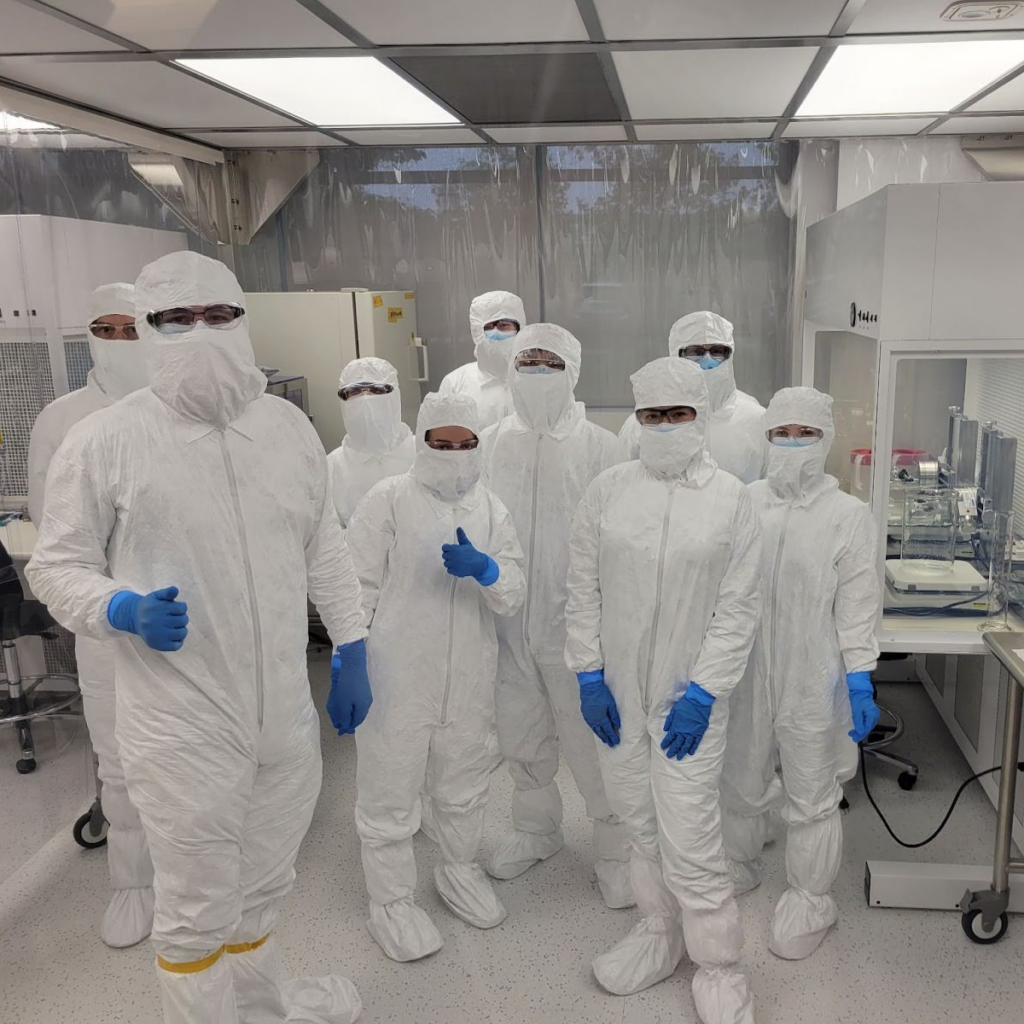
The structure of a “standard” Princeton course usually includes a mix of lectures, precepts, or seminars which likely have a midterm and final. While some of these courses may have “lab” components where you spend a couple hours once a week doing a hands-on assignment, there exist many courses at Princeton which are instead entirely focused on conducting hands-on, lab-based research with a small team that works closely with professors who provide mentorship as you work on an original research project. If you’ve ever wanted to take a class that is far different from anything else at Princeton by teaching you hands-on skills and giving the opportunity for a new project, these types of courses might be for you!
Some of these courses are year-long sequences like AST250 Space Physics Lab I and AST251 Space Physics Lab II, which I took during the 2022-2023 academic year. This was one of my favorite course experiences at Princeton and was certainly the most engaging. The skills we learned were invaluable, and as we worked closely with the professors and each other, our year-long project became an unforgettable experience.
In the AST250-251 Space Physics Lab Sequence, a team of up to 10 students carry out a group research project, where the first half of the course (AST250) is designed to teach you lab skills and introduce you to the types of research that is done in the lab—as you and your teammates learns the ropes and formulates ideas on how you want to carry out your project. The second half (AST251) is where your team fully transitions from learning to doing: designing, iterating, and experimenting to complete your project by the end of the spring semester.
My team designed and built a revised version of a device called an Absolute Beam Monitor (ABM) designed to detect, monitor, and classify different types of laser beams in a vacuum. Our ABM’s design purpose was to calibrate the beam line used to simulate different types of solar wind for use in the Princeton Space Physics Lab’s vacuum chamber. In AST250 we learned how to operate the vacuum chamber, use and program its software, build components in the cleanroom, and test everything with the beam. We ended the semester by building a prototype ABM which we tested in various ways to see how we can change its design to improve the efficiency and accuracy of detecting incoming beams. After this, we spent AST251 testing the prototype and investigating its problems while coming up with solutions. We then designed a revision that we built and tested, which culminated into our final presentation where we showed how our improvements significantly helped the results of the instrument.
Our revised ABM was significantly more efficient than the previous design, capturing more of the beam while taking less power. The new design was also easier to assemble and was much safer to use in the machine, as we modified outer segments to prevent them from possibly damaging other devices in the vacuum chamber. All of the students learned and grew so much as a team with an experience that felt beyond an undergraduate “learning” in a lab: We did real work and felt connected to the lab and the staff as we did research alongside them.
Along with AST250–251 in the Astrophysics department there are also similar sequences in other departments such as Chemistry (CHM250–251), Engineering/Entrepreneurship (EGR250–251), Psychology, (PSY230–231), and Molecular Biology (MOL280–281) which are all two-course sequences where you work in a lab doing independent/team-based research as the primary component of the course.
There are also other courses where you do lab-based research for a single semester, such as PHY312 or MOL350, and there are many courses that are focused on independent research in general, like NEU250, PHY235, ARC300, SML310, NES300, GER300, or ORF376 among other departments. Many departments—even outside of STEM—offer research courses that can be a refreshing experience which offer something no lecture or classroom can. If you think you might want to work in a lab or do research as a career, you should strongly consider taking a research course (or sequence). It might convince you to pursue a career doing something not every Princeton undergraduate gets the chance to do!
— Xander Jenkin, Natural Sciences Correspondent

